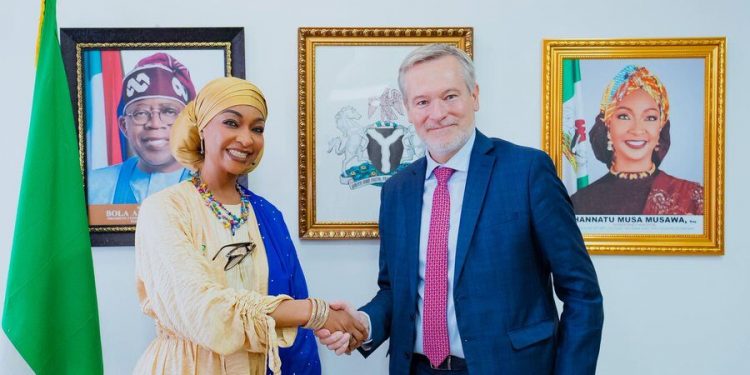Nigeria and the European Union have entered a €20 million partnership to strengthen the country’s cultural and creative economy through targeted support for museums, film festivals, and digital creative industries.
The agreement was unveiled during a courtesy visit by the EU delegation, led by Ambassador Gautier Mignot, Head of the EU Delegation to Nigeria and ECOWAS, to Nigeria’s Minister of Arts, Culture, Tourism, and the Creative Economy in Abuja. The initiative is part of a broader vision to harness Nigeria’s cultural wealth to drive economic growth, create jobs, and promote national unity.
The deal highlights a renewed commitment to international cultural cooperation, positioning culture not just as an identity marker but also as a catalyst for development and inclusion. It also underlines shared priorities such as youth employment, digital innovation, and infrastructure development.
As part of the initiative, the Nigerian government announced plans to produce a “Unity Song” featuring popular local artists. The song is aimed at promoting social cohesion and addressing insecurity through the unifying power of music.
The statement also revealed that preparations are underway to host a Creative Economy Summit. This summit is expected to bring together key players from across Nigeria’s cultural and creative sectors to align strategies, attract investments, and streamline development efforts.
Minister Hannatu Musa Musawa stressed the importance of data-driven decision-making, noting that ongoing cultural data mapping will guide interventions and ensure resources are better allocated for maximum impact. According to her, comprehensive insights into Nigeria’s creative ecosystem are essential for shaping effective policies and evaluating results.
The EU and Nigerian government reaffirmed their joint commitment to capacity building, digital skill development, and infrastructure support, with an emphasis on ensuring that projects reflect both global best practices and the distinct cultural and economic realities of Nigerian communities.
This partnership represents a strategic boost for Nigeria’s growing creative economy, reinforcing its potential as a significant contributor to GDP, national pride, and Africa’s cultural leadership on the global stage.










